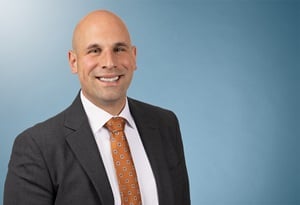Deal to Raise Debt Limit and End Shutdown Leaves Health Issues Unresolved
While Congress may have succeeded in doing what it has done best lately — going down to the wire to avoid a potential debt ceiling disaster and resolve a 16-day government shutdown — much of the agreement may leave observers with a sense of déjà vu.
Under the agreement approved by Congress late on October 16, 2013 and signed into law by President Obama the morning of October 17, 2013, the country's borrowing authority is now extended until February 7, 2014, and the government funded through January 15, 2014. This permits shuttered agencies and furloughed workers to return to work starting on October 17. The agreement also constitutes a House and Senate Conference Committee that is tasked with reporting — by December 13, or less than two months from today – a joint House/Senate budget for FY 14. This framework will then be used to assemble a spending bill for the remainder of FY 14, which began October 1. The agreement also requires that those persons applying for a premium tax credit to purchase health insurance via the exchanges have their incomes verified.
The core terms of the agreement have many harkening back to two years ago, when a Congressional "Super Committee" was constituted to identify $1.2 to $1.5 trillion in savings over 10 years. That committee failed to achieve this goal, resulting in implementation of across-the-board cuts known as sequestration. Sequestration is largely panned by Republicans and Democrats alike, yet achieving bipartisan agreement on a replacement that cuts about $100 billion of spending each year has proven to be elusive.
Given the gridlock that has marked Congress of late, a healthy skepticism about the ability of the conference committee to succeed is warranted. One advantage this effort may have over the Super Committee is that it will be executed under the typical procedures of forming conferences and appointing conferees to develop the agreement. The committee will be led by Senate Budget Committee Chairman Patty Murray (D-WA) and House Budget Committee Chairman Paul Ryan (R-WI); about 30 members from both chambers will constitute the committee. Additionally, sequestration is no longer an abstract or academic concept now that multiple sectors including defense and security, education, healthcare providers, and research entities have felt the pinch and making their frustrations known. Of course, the "devil" you know, can often be better than the devil you don't.
For health care stakeholders, what's not included in the deal may be just as or even more important than the agreement's contents. At various times over the past fortnight, a number of high-profile health issues, notably a permanent repeal of the SGR formula and repeal of the Accountable Care Act medical device tax, were floated by proponents as potential pieces of an agreement. In the end, neither of these items made it in, meaning their proponents will be seeking other vehicles.
Delaying implementation of the SGR cuts has been a driver of late-year Medicare legislation in recent years. Absent in such action, doctors who care for Medicare patients would face a 24 percent reduction in how much they are paid come January 1, 2014. The powerful influence of health care provider lobbyists and senior advocates makes such a proposition cut unlikely, but one big question will be if Congress can push forward a permanent repeal or if we are once again likely to see a one-year punt.
Like SGR, repealing the device tax continues to enjoy strong bipartisan support in both chambers. At the same time, the $30 billion over 10-year hole its repeal would create and concerns that other entities taxed under health care reform will demand similar treatments present potential problems. Ultimately, the device tax and other Medicare reform provisions — such as limiting supplemental policies, means-testing Medicare Part B premiums, and consolidating Part A and B premiums — will most likely be on the table as part of the larger budget negotiations.
Now that a deal has been passed in Congress, it would be wise for health care stakeholders to focus acutely on the conference committee and its two-month sprint to December 13.


